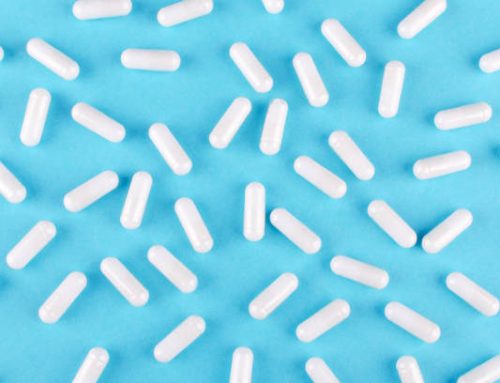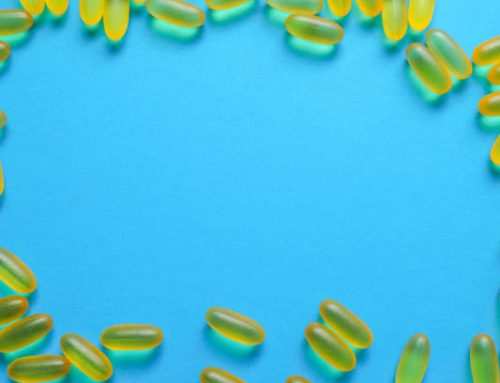As parents, we strive to give our children the best possible start in life. We want them to grow up strong and healthy, with the tools they need to succeed in their lives. One of the most important pieces of this puzzle is building strong bones. Bones are the foundation of our bodies, supporting us as we grow and move through life. But how can we ensure that our little ones are getting the nutrients they need for healthy bone development? That’s where kid’s chewable calcium comes in. These nutritional and herbal supplements provide the perfect balance of nutrients to help support your child’s bone health and lay the foundation for a lifetime of strength and wellness. So let’s dive into the world of kid’s chewable calcium and see how we can help our little ones build strong bones for a bright future.


1. Build Healthy Foundations: The Importance of Strong Bones in Children
As parents, guardians, and caregivers, we all want to provide our children with the best foundation possible for their physical and mental health. One of the most important aspects of building a healthy foundation is supporting strong bones in children. Bones play a critical role not just in our physical ability to move, but also in supporting our organs and protecting our bodies.
There are several things you can do to help your child build strong bones. The first step is ensuring they are consuming a balanced diet that is rich in essential nutrients like calcium and vitamin D. Calcium is critical for bone health, and many children do not get enough in their diets. Good sources of calcium include dairy products, leafy greens, and almonds.
Vitamin D is also essential for bone health as it helps the body absorb calcium. While our bodies can produce vitamin D when exposed to sunlight, it can be difficult to get enough through sun exposure alone. Foods like fatty fish and fortified cereals can also provide vitamin D.
In addition to a balanced diet, physical activity is also crucial for building strong bones. Activities that involve weight-bearing exercises like running and jumping can help strengthen bones, as can strength-training exercises. Encouraging your child to participate in sports or other physical activities can help support bone health.
Herbal Supplements for Bone Health
While a healthy diet and physical activity are essential for building strong bones, some herbal supplements may also be beneficial. Keep in mind that supplements should not replace a balanced diet, but can be used to support it.
- Calcium supplements: If your child is not getting enough calcium through their diet, a calcium supplement may help fill the gap. Calcium supplements can be found in various forms, including gummies, tablets, and liquids.
- Vitamin D supplements: Similarly, if your child is not getting enough vitamin D through their diet and sun exposure, a supplement may be helpful. Vitamin D supplements can also be found in various forms.
- Herbal teas: Some herbal teas, like nettle or horsetail tea, may help support bone health thanks to their mineral content. However, it’s important to talk to a healthcare provider before giving your child any herbal supplements.
Building strong bones in children is critical for their long-term physical health. By ensuring your child is consuming a balanced diet, getting enough physical activity, and considering herbal supplements as needed, you can help support their bone health throughout childhood and beyond.
2. Kid’s Chewable Calcium: A Delicious and Effective Way to Support Bone Health
Calcium is a vital mineral that plays a significant role in building strong bones in children. Strong bones are essential for healthy growth and development, which is why it’s important to ensure your children are getting enough calcium in their diet. However, convincing children to take their daily dose of calcium can be a struggle. This is where chewable calcium supplements come in. They are not only effective in building strong bones but also delicious and fun to take!
Kid’s chewable calcium supplements are specially formulated to suit the taste buds of children. They are available in a variety of flavors such as orange, grape, and strawberry. This ensures that your children will look forward to taking their daily dose of calcium. Additionally, chewable supplements have a higher absorption rate as they are absorbed directly in the mouth before swallowing. This means that your kids get more calcium per serving and absorb it more effectively.
Aside from promoting strong and healthy bones, calcium has several other benefits for growing children. It supports muscle function, maintains healthy teeth, and helps in blood clotting. It also helps in regulating the heartbeat and supports the nervous system.
How Much Calcium Do Kids Need?
The amount of calcium a child needs depends on their age. According to the National Institutes of Health (NIH), the recommended daily intake of calcium for children is as follows:
- 1 to 3 years old: 700 milligrams (mg) of calcium per day
- 4 to 8 years old: 1,000 mg of calcium per day
- 9 to 18 years old: 1,300 mg of calcium per day
The Bottom Line
Kid’s chewable calcium supplements provide an effective and delicious way to support your child’s bone health. They are easy to take, have a higher absorption rate, and are available in a variety of flavors to cater to your child’s taste buds. Make sure your child is getting enough calcium by including it in their daily diet or supplementing with a chewable supplement. Your child’s health and well-being are worth every effort!
3. Finding the Right Formula: Choosing the Best Nutritional Supplements for Your Child
Nutritional supplements can be a great way to ensure that your child gets all the nutrients they need. With so many products available, however, choosing the right formula can be overwhelming. Here are some tips to help you select the best nutritional supplement for your child.
Consider Your Child’s Needs
Every child has different nutritional needs, depending on their age, gender, and overall health. Take stock of your child’s diet, activity level, and potential deficiencies before choosing a supplement. For example, if your child is a picky eater and lacks important vitamins and minerals, a multivitamin may be the best choice. If your child is an athlete or prone to fatigue, a supplement that supports energy production, such as CoQ10, may be beneficial.
Read the Labels Carefully
Not all supplements are created equal, and not all ingredients are safe for children. Before purchasing a product, carefully read the label for any potential allergens or additives. Look for supplements that contain high-quality, bioavailable nutrients, and avoid those with artificial colors or flavors.
Choose Trusted Brands
When it comes to nutritional supplements, quality matters. Choose trusted brands that have a reputation for producing safe, effective products. Look for certifications such as GMP (Good Manufacturing Practice) or USP (United States Pharmacopeia) to ensure that the product meets strict quality standards.
Consult with a Healthcare Professional
If you’re unsure about which supplement to choose or have concerns about potential interactions with other medications, consult with a healthcare professional. Your child’s pediatrician, a naturopathic doctor, or a registered dietitian can help you make an informed decision.
Remember, nutritional supplements should never replace a healthy and balanced diet. They are intended to supplement and support a nutritious eating plan. With the right formula and the right guidance, nutritional supplements can help your child thrive.
4. Beyond Calcium: Key Vitamins and Minerals That Promote Strong Bones and Overall Health
When we think of bone health, the first nutrient that comes to mind is often calcium. And while calcium is undoubtedly critical for strong bones, it’s far from the only essential mineral.
Here are four other key vitamins and minerals that are essential for bone health, along with tips to help you get your daily dose.
1. Vitamin D
Vitamin D is essential for the absorption of calcium, making it a must-have for strong bones. Studies have shown that vitamin D can reduce the risk of fractures, especially in older adults. Plus, vitamin D also supports overall immune function and can reduce the risk of certain cancers.
The best source of vitamin D is sunlight, but many people don’t get enough through sun exposure alone. Foods like fatty fish (such as salmon), egg yolks, and mushrooms can also provide vitamin D. If you’re struggling to get enough through your diet, consider taking a supplement.
2. Magnesium
Magnesium is another mineral that’s crucial for bone health. In fact, magnesium is involved in more than 300 enzymatic reactions in the body, so it’s essential for overall health, too. Research has shown that magnesium can boost bone density and reduce the risk of osteoporosis.
You can get magnesium through foods like spinach, almonds, black beans, and avocados. If you need a boost, consider taking a magnesium supplement.
3. Vitamin K
Vitamin K is essential for bone health because it helps regulate calcium absorption. Studies have shown that vitamin K can lower the risk of fractures and increase bone density, especially in postmenopausal women.
Leafy greens like kale, spinach, and broccoli are high in vitamin K, as are fermented foods like sauerkraut and natto. If you’re not a fan of these foods, consider taking a vitamin K supplement.
4. Zinc
Zinc is another mineral involved in bone health. It helps with the growth and repair of bone tissue and can boost bone density. Zinc is also essential for overall immune function and can help with wound healing.
Foods like beef, pork, chicken, and beans are high in zinc. If you’re not getting enough through your diet, consider taking a supplement.
Incorporating these key vitamins and minerals into your diet is crucial for strong bones and overall health. Whether you choose to get them through food or supplements, make sure you’re getting enough of each nutrient to keep your body in tip-top shape.
5. Unlocking Your Child’s Potential: How Proper Nutrition and Supplements Can Help Them Thrive
As a parent, you want nothing but the best for your child. You want them to be healthy, happy, and most importantly, successful in all aspects of life. That’s why it’s important to provide them with the right nutrition and supplements to help them thrive.
One of the most important nutrients for a child’s development is Omega-3 fatty acids. These essential fatty acids are crucial for brain development and improving cognitive function. Omega-3s are found in fish oil, flaxseed oil, and chia seeds, among others. By incorporating these foods into your child’s diet, they can boost their memory, concentration, and overall brain performance, helping them to unlock their full potential.
In addition to Omega-3s, other essential vitamins and minerals can also play a crucial role in your child’s development. Zinc, for instance, is important for immune function, while Iron is essential for carrying oxygen throughout the body. Vitamin C is also critical for immune health and collagen production, while Vitamin D helps to build strong bones and teeth. By ensuring your child gets enough of these nutrients through a balanced diet or supplements, they’ll be able to excel in all aspects of life.
When it comes to supplements, herbs such as ginkgo and bacopa are known to improve brain function, memory, and concentration. These natural remedies have been used for centuries in traditional medicine to help improve cognitive function and focus. By incorporating these herbs into your child’s diet, they can improve their attention span and ability to learn, setting them up for success.
Lastly, it’s important to note that every child is different, and what works for one may not work for another. Before introducing any new supplements or changing your child’s diet, it’s important to consult with a healthcare professional to ensure they’re getting the right nutrients in the right amounts. With proper nutrition and supplements, you can help unlock your child’s potential and set them up for a bright future. Conclusion:
As parents, we all want our children to grow strong with healthy bones. It can be challenging to ensure that your child is getting enough calcium through their diet alone. Kid’s Chewable Calcium supplements are the perfect solution to ensure your child is getting the right amount of calcium they require. These supplements are safe, tasty, and easy to administer.
It is important to consult with your Pediatrician before adding any new supplements to your child’s diet. With their guidance, you can ensure that your child is getting the right amount of Calcium that they need. Making small changes like supplementing with Kid’s Chewable Calcium can make a significant difference in your child’s bone health and overall wellbeing.
FAQ:
Q. Can children overdose on Calcium Supplements?
A. Consuming too much calcium can lead to hypercalcemia, which can cause symptoms like stomach pain, nausea, and vomiting. However, if your child is taking the recommended dosage of Kid’s Chewable Calcium, they are unlikely to overdose.
Q. Can Kid’s Chewable Calcium supplements replace a balanced diet?
A. No, supplements should not replace a balanced diet. However, they can help supplement your child’s diet and ensure they are getting enough calcium.
Q. Are there any side effects of Kid’s Chewable Calcium supplements?
A. Some children may experience side effects such as constipation or stomach upset. However, these side effects are generally mild and can be avoided by drinking enough water and taking the supplements with food.
Q. Are Kid’s Chewable Calcium supplements vegan-friendly?
A. Some Kid’s Chewable Calcium supplements are vegan-friendly, so it is essential to read the labels before purchasing.
Q. At what age can children start taking Kid’s Chewable Calcium supplements?
A. Children aged 4-8 years require around 1000mg of Calcium per day. It is safe for children aged 4 and above to take Kid’s Chewable Calcium supplements, provided they are taking the recommended daily dosage.




